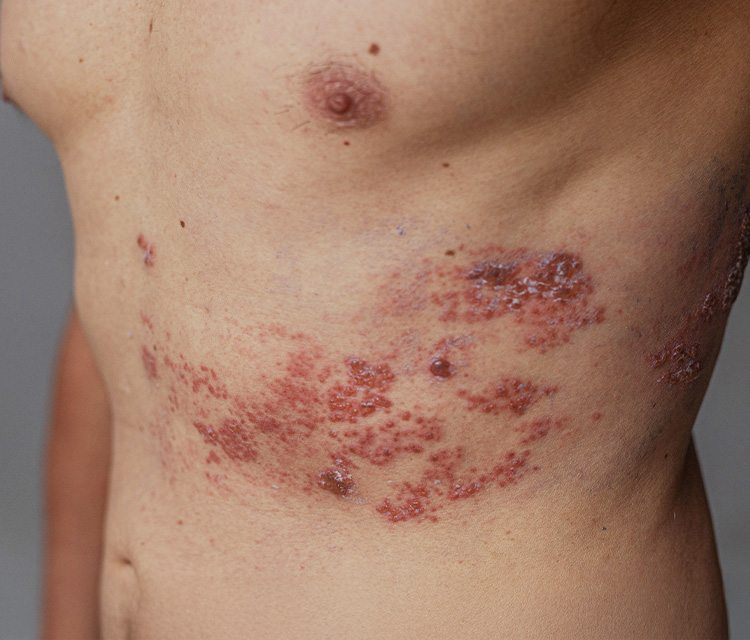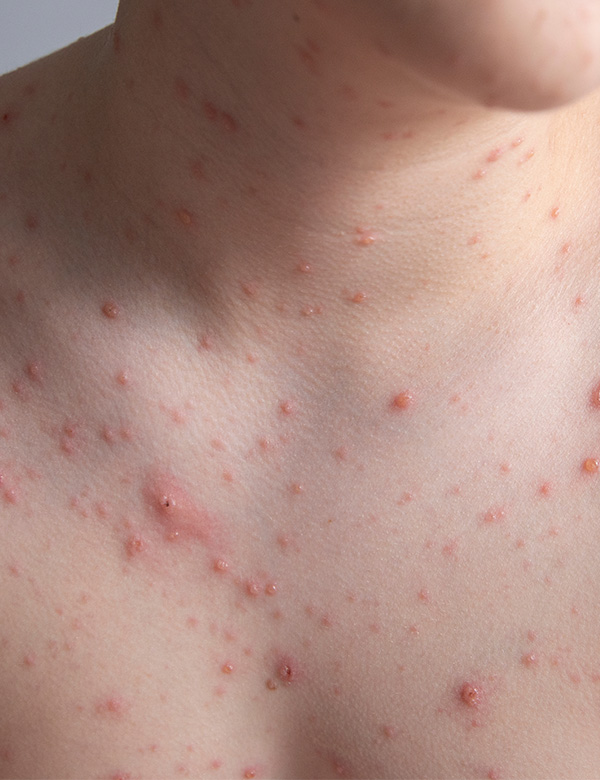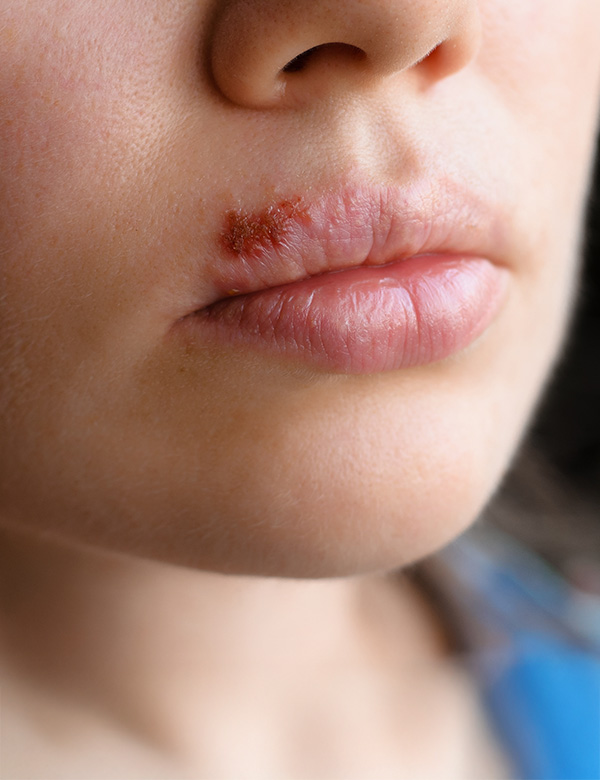Removing warts in adults
Wart treatment by experienced dermatologists at Derma Medical Clinic in Zurich – Sihlcity
Warts in Adults
Chronische Abszesse und schmerzhafte Knoten durch erfahrenen Hautarzt abklären und behandeln in der Derma Medical Clinic in Zürich - Sihlcity
Effective wart treatment – thorough dermatological examination and combined therapies such as medical creams, freezing, laser, and removal – right here in the clinic
Examinations
Dermatological examination
Procedure
Initial consultation and skin examination
Duration
20–30 minutes
What are warts?
Warts (medical term: verrucae) are benign growths on the skin caused by infection with human papillomavirus (HPV). They often appear on the hands, feet, or face – sometimes as single warts, sometimes in groups.
Depending on the type, they can be flat, hardened, or grow inward like a small thorn. Plantar warts on the soles of the feet, for example, can be painful when walking. Warts are usually harmless, but they are contagious and can spread – especially if picked or injured.
It’s a good idea to get warts checked and treated if…
- You have warts on your hands, feet, or face that don’t go away on their own
- The warts grow, hurt, or keep becoming inflamed
- You’ve tried over-the-counter products but haven’t seen improvement
- The warts are bothersome in daily life or cosmetically distressing

What are warts?
Warts (medical term: verrucae) are benign growths on the skin caused by infection with human papillomavirus (HPV). They often appear on the hands, feet, or face – sometimes as single warts, sometimes in groups.
Depending on the type, they can be flat, hardened, or grow inward like a small thorn. Plantar warts on the soles of the feet, for example, can be painful when walking. Warts are usually harmless, but they are contagious and can spread – especially if picked or injured.
Who should consider having warts checked or treated?
It’s a good idea to get warts checked and treated if…
- You have warts on your hands, feet, or face that don’t go away on their own
- The warts grow, hurt, or keep becoming inflamed
- You’ve tried over-the-counter products but haven’t seen improvement
- The warts are bothersome in daily life or cosmetically distressing
Treatment
At Derma Medical Clinic, the dermatologist first examines the warts with the naked eye and—if needed—with a special magnifying tool (dermatoscope). This helps confirm whether it’s truly a viral wart or another skin condition.
If the diagnosis is unclear or changes over time, a small skin sample can be taken directly in our procedure room.
What happens during treatment?
Depending on the type of wart and its location, different methods can be used—often in combination:
The affected area is often frozen with liquid nitrogen (cryotherapy) or scraped with a fine instrument (curettage). In some cases, laser treatment or medical creams may be helpful.
All treatments are performed on-site and may be repeated if needed. The goal is to remove the wart completely while causing as little irritation to the surrounding skin as possible.
How does the wart treatment process work?
First appointment & examination
At your first visit, the dermatologist will talk with you about your symptoms, medical history, and any previous treatments. The affected skin will then be carefully examined.
Choosing the right treatment
Based on the type, number, and location of the warts, we will decide on the most suitable option. Often, combining methods improves the likelihood of success.
Treatment session
Treatment is carried out directly at our clinic. Each session usually takes just a few minutes. Afterward, the skin may be slightly red or sensitive, depending on the method used.
Follow-up visits & monitoring
Warts can be persistent and sometimes come back. That’s why we schedule follow-up visits if needed—to monitor progress or repeat the treatment.

At Derma Medical Clinic, wart treatments are performed only by qualified dermatology specialists:
- Benjamin Miller, specialist in dermatology and phlebology
- Markus Dendorfer, specialist in dermatology and pediatric dermatology
Both have many years of experience in assessing and treating warts in both adults and children.

Dr. med. Benjamin Miller
Board-certified Specialist in Dermatology & Venereology FMH

Dr. med. Markus Dendorfer
Board-certified Specialist in Dermatology & Venereology FMH
What to expect from us
Multiple treatment options
Many paths, one goal: We use proven techniques like freezing (cryotherapy), laser, removal, or medical creams. We often combine methods to achieve better results.
Experience with complex cases
Even if warts have returned multiple times or previous treatments were unsuccessful, we create a clear plan that includes regular progress checks and adjusted therapies.
Gentle approach for sensitive skin
If you prefer a gentle approach, we plan treatments that minimize skin irritation—especially helpful for warts on the face or sensitive areas.
All services under one roof
You receive diagnosis, treatment, and therapeutic support all in one place. This means direct contact with your care team, short wait times, and coordinated treatment from first visit to follow-up care.
Warts that spread, hurt, or just won’t go away can be bothersome—especially in visible or sensitive areas.
Book an appointment now for a dermatological evaluation and treatment at Derma Medical Clinic in Zurich – Sihlcity.
FAQ – Frequently Asked Questions About Warts
What are warts and how do they develop?
Warts are harmless skin growths caused by human papillomavirus (HPV). The virus typically enters through small skin injuries—e.g., in swimming pools, saunas, or through direct skin contact.
What types of warts occur in adults?
Common types include plantar warts on the soles (painful when walking), common warts on hands and fingers, flat warts on the face, and skin tags—often on the neck—which are called warts in everyday language but are benign skin outgrowths. Genital warts (sexually transmitted) may also occur.
How are warts treated?
Depending on the type, treatment may involve freezing (cryotherapy), laser therapy, minor surgery, or topical solutions. Stubborn warts often require multiple sessions.
When should I see a dermatologist about warts?
If warts hurt, spread, don’t respond to home remedies, or occur on the face or genital area, seeing a dermatologist makes sense—to rule out other conditions too.
Are warts contagious?
Yes. Warts spread through direct skin contact or shared items (e.g., towels, floors in public showers). Good hygiene helps prevent infection.
How long does it take for warts to go away?
Depending on the wart type and treatment method, healing can take several weeks to months. Proper skin care and hygiene help prevent recurrence.
Can I remove warts myself?
Over-the-counter remedies may help with surface warts. But deep or painful warts shouldn’t be self-treated—this may lead to infection or scarring.
How can I prevent warts?
Avoid walking barefoot in public showers, use your own towels, care for wounds properly, and keep your immune system strong to reduce your risk of catching wart viruses.



